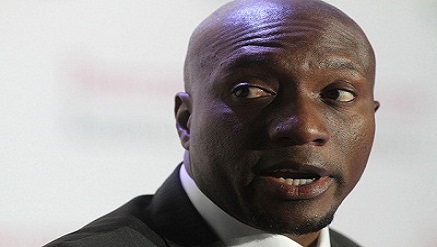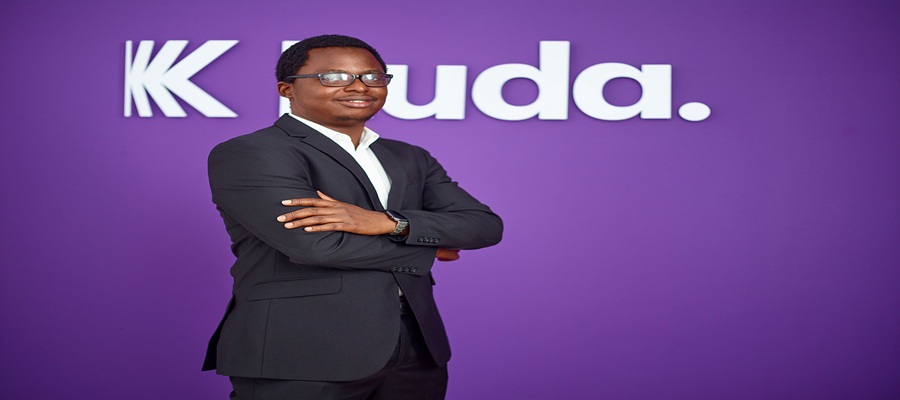E-Financial
Capital Market Operators Trek Lazily to FIX Software Upgrade

Stock brokering firms and investment banks in the country are lazily marching to adopt Financial Information Exchange (FIX) protocol software, even as the deadline for the completion has expired, Nigeria Communicationsweek has learnt.
The FIX Protocol is a free, open and non-proprietary messaging standard that was developed in 1992 by Fidelity Investments & Salomon Brothers to facilitate bilateral communications framework for equities trading.
Since its conception, its usage has significantly expanded in response to evolving industry needs and today it is the predominant messaging standard for pre-trade and trade communication globally within the equity markets.
FIX has metamorphosed many times over in a bid to satisfy investor taste complexities. With growing local supports now expanding, the Nigeria space will leapfrog from local support vendors’ investments in FIX to ensure the proposed FIX platforms succeed.
Amos Emmanuel, chief executive officer, Programos Software Limited- a major player in the capital market space, said that the market is already due to commence the use of the FIX OMS technology as some stockbroking firms are already at different certification stages on the process using their recommended infrastructure.
“Virtually every major stock exchange and investment bank uses FIX for electronic trading, as do the world’s largest mutual funds and money Managers and thousands of smaller investment firms. Leading futures exchanges offer FIX connections and major bond dealers either have or are implementing them.”
He added that: “Though challenges ranging from power, infrastructure, regulatory may impede smooth take off, many organizations have complied by acquiring the required software and communication technologies adequate for the FIX implementation. The good signs include that investor confidence will return to most implementing turbulent markets who may have previously experienced painful recessions, and that market transparency will improved tremendously.”
“The bad signs are that it may take players more time to tinker most efficient ways to optimize the benefits of the FIX Protocol for the advancement of the economic developments in line with the overall post-2015 sustainable development goals (SDGs); and that fresh government policies will cause a shift in the intense interest of operators to adopt the beautiful global technological introductions of the Fix Trading Community not-for-profit organization
Yele Okeremi, chief executive officer, Precise Financial Systems, said that the mandate to adopt the global standard of FIX protocol is a step in the right direction as it will allow indigenous software providers in the capital market to compete with foreign providers and as well give the local operators more opportunity to play on a global level.
He however, cautioned against some stock broking firm using the mandate to show preference for foreign software against the local ones. He noted that it is security risk to allow foreigners control the country financial data now that they have taken control of our national data in the National Identity card scheme.
The software expert, urged capital market software providers to be intelligent and scale up their product to meet the adopted FIX protocol in order to consolidate their dominance in the capital market space.
Nigeria CommunicationsWeek investigations also revealed that Security and Exchange Commission’s (SEC) mandate to stock broking firms to recapitalize to the tune of N300million by the end of December this year has also affected the effort of broking firms to upgrade to FIX protocol.
E-Financial
UBA launches instant digital platform for seamless account opening across Africa, diaspora

United Bank for Africa (UBA) Plc, Africa’s leading financial institution, on Tuesday unveiled a groundbreaking instant account opening platform, revolutionising banking access for millions across the continent and diaspora communities worldwide.

UBA
The fully digital innovation, accessible at ubagroup.com, empowers prospective customers to complete account onboarding online in minutes, bypassing paperwork, branch visits, and lengthy processes that have long hindered financial inclusion. Supporting Naira and Diaspora accounts with multi-language options, the platform operates seamlessly on computers, tablets, and smartphones, catering to UBA’s diverse pan-African footprint spanning 20 countries, the UK, US, France, and UAE.
Shamsideen Fashola, Group Head of Retail and Digital Banking, described the launch as a pivotal step in democratising finance. “At UBA, we are committed to redefining the customer experience through innovation and simplicity,” Fashola said. “This fully digital solution underscores our belief that banking should be accessible, secure, and truly borderless.”
The seven-step process is intuitive: customers select “Open a Savings Account,” input their Bank Verification Number (BVN), undergo facial verification, confirm an OTP, update details, upload documents, add a digital signature, and receive an instant account number. This bridges traditional banking rigour with fintech speed, incorporating digital KYC while upholding stringent security.
Built with compliance at its core, the platform adheres to Nigeria’s Data Protection Act (NDPA) and Europe’s GDPR, safeguarding user privacy amid cross-border operations. Unlike conventional methods requiring physical biometrics, it enables immediate enrolment in UBA’s digital channels, blending convenience with regulatory depth.
Alero Ladipo, Group Head of Brand, Marketing, and Corporate Communications, highlighted customer-centric design. “Today’s customers expect speed, convenience, and compliance without compromise,” Ladipo stated. “We have blended industry-leading digital onboarding with robust standards for a seamless experience matching global best practices.”
The move reinforces UBA’s dominance in technology-driven inclusion, serving over 50 million customers with 30,000 employees and pioneering retail, commercial, and institutional services. Analysts view it as a strategic edge over fintech rivals, accelerating Africa’s digital economy amid rising diaspora remittances and intra-continental trade.
As Nigeria and Africa push financial digitisation, UBA’s platform positions the bank to capture untapped markets, fostering economic growth through barrier-free banking
E-Financial
Kuda MFB Secures National Microfinance Banking Licence, Sets Stage for Nationwide Growth

Kuda Microfinance Bank (Kuda MFB) has received a license from the Central Bank of Nigeria (CBN) to operate as a National Microfinance Bank, which means that it can now have a physical presence across Nigeria.

Musty Mustapha, MD/CEO of Kuda MFB
With the Unit Microfinance Bank licence it held until December 2025, Kuda MFB’s physical operations were limited to a specific location. The national licence removes those geographic restrictions, allowing the bank to open customer experience centres in multiple parts of the country. It also regularises Kuda MFB’s licensing status in line with the Central Bank’s framework for microfinance banks.
According to the bank, the national licence is about regulatory alignment and operational flexibility rather than a shift away from its digital-first model, so it will continue to lead with digital banking services, offering Nigerians the convenience of making transfers and payments, saving, and accessing instant credit through the Kuda app.
Musty Mustapha, MD/CEO of Kuda MFB, said, “Securing a national microfinance banking licence is an important step for us as a regulated institution. It strengthens our relationship with the Central Bank and affirms our commitment to operating at the highest standards of compliance as we scale. While we remain digital at our core, this licence gives us the flexibility to create more physical touchpoints where customers want in-person support or engagement, allowing us to serve Nigerians across the country in whichever ways are most convenient for them.”
Subject to regulatory approval, Kuda MFB plans to open more experience centres designed for customer support and community engagement, in the style of its existing experience centre in Yaba, Lagos, where customers and the general public can speak directly with the Kuda team to get help and learn about the microfinance bank’s products and services.
Kuda MFB’s national licence does not change its existing product offerings or transaction capabilities, but it provides the regulatory backing for a nationwide presence.
E-Financial
NDIC Seeks EFCC’s Support to Trace, Recover Assets of Failed Banks

Nigeria Deposit Insurance Corporation (NDIC) and the Economic and Financial Crimes Commission (EFCC) have agreed to strengthen collaboration to enhance the investigation and prosecution of offences that lead to bank failures, while also improving the recovery of assets and debts of failed banks.

Thompson Oludare Sunday, managing director and chief executive of the NDIC, made this known during a courtesy visit by the Corporation’s management team to Olanipekun Olukoyede, executive chairman of the EFCC, at the Commission’s headquarters in Abuja.
In a statement issued on Sunday by the NDIC’s Hawwau Gambo, head of Communication and Public Affairs, Sunday said robust partnership with the EFCC is critical to the effective liquidation of failed banks, a process that involves asset realisation and debt recovery, with proceeds used to settle uninsured deposits.
He noted that cases of asset stripping and concealment require coordinated efforts, particularly in asset tracing, recovery and enforcement, adding that the EFCC’s expertise is vital in achieving these objectives.
Sunday also identified banking fraud investigations and the prosecution of individuals whose actions contribute to bank collapses as key areas where both institutions can further strengthen their cooperation.
He stressed that NDIC plays a vital role in maintaining financial system stability through the execution of its four statutory mandates in deposit guarantee, bank supervision, distress resolution and bank liquidation.
According to him, the Corporation’s overarching goal is to safeguard depositors’ funds, ensure prompt compensation when banks fail, and sustain public confidence in the financial system.
He also observed that both institutions share common values of integrity, professionalism and accountability, describing the visit as a step towards reinforcing institutional partnership, especially in areas where EFCC’s investigative and prosecutorial capacity is essential to NDIC’s mandate.
“We aim to further strengthen our collaboration, deepen institutional synergy and explore additional avenues for mutual support in the pursuit of national financial system stability.
“The EFCC has been our partner and we want this to continue. We look forward to an expanded and more impactful partnership between our two esteemed institutions.
“Your experience has and will continue to greatly enhance our recovery efforts. Additionally, we have that strategic responsibility for prosecuting individuals whose actions contribute to the failure of banks. We therefore seek closer collaboration with the Commission in this critical area”
Responding, the EFCC boss, Olukoyede, reiterated the Commission’s commitment to its longstanding working relationship with the NDIC in tackling financial crimes within the banking sector.
He acknowledged the history of cooperation between the two agencies, particularly in investigations and capacity development related to banking operations.
Olukoyede also briefed the delegation on key departments within the EFCC, including the Bank Fraud Section, which handles matters related to the NDIC.
He encouraged the Corporation to submit any outstanding cases for prompt assessment, noting that this would enhance tracking, accountability and case resolution.
The EFCC Chairman further highlighted the role of the Commission’s Fraud Risk Assessment and Control Department, which focuses on proactive monitoring, compliance, sound risk management and internal controls in both public and private sector institutions.
He described these efforts as part of the EFCC’s broader mandate to protect and strengthen the Nigerian economy.
Olukoyede assured the NDIC of the EFCC’s continued support in deepening institutional synergy to combat financial crimes, improve asset recovery, and ensure that offenders who undermine the banking sector are brought to justice.

 E-Financial2 days ago
E-Financial2 days agoCBN Upgrades Licences of Opay, Moniepoint, Kuda, Palmpay, Paga to National Status
- E-Financial2 days ago
Nigeria’s 9 Top FinTech Firms Valued at $10.6Bn in January 2026

 News2 days ago
News2 days agoTech Executives Double Down on AI, Talent and Adaptive Strategies to Lead in the Intelligence Age

 E-Financial2 days ago
E-Financial2 days agoNIBBS to Boost Financial Inclusion with Offline Payment Solutions

 News2 days ago
News2 days agoDHQ Indicts Brigadier General Abubakar Sadiq, 15 Others in Alleged Coup Plot againt Tinubu

 E-Business2 days ago
E-Business2 days agoFirm Identifies AI as Common Denominator in Entertainment Industry’s 2026 Security Threats

 E-Financial1 day ago
E-Financial1 day agoPayPal Goes Live in Nigeria through Paga

 General News2 days ago
General News2 days agoWEBINAR: Techeconomy Business Series Hosts Experts from MTN, Interswitch, BusinessPlus, others this Wednesday



























